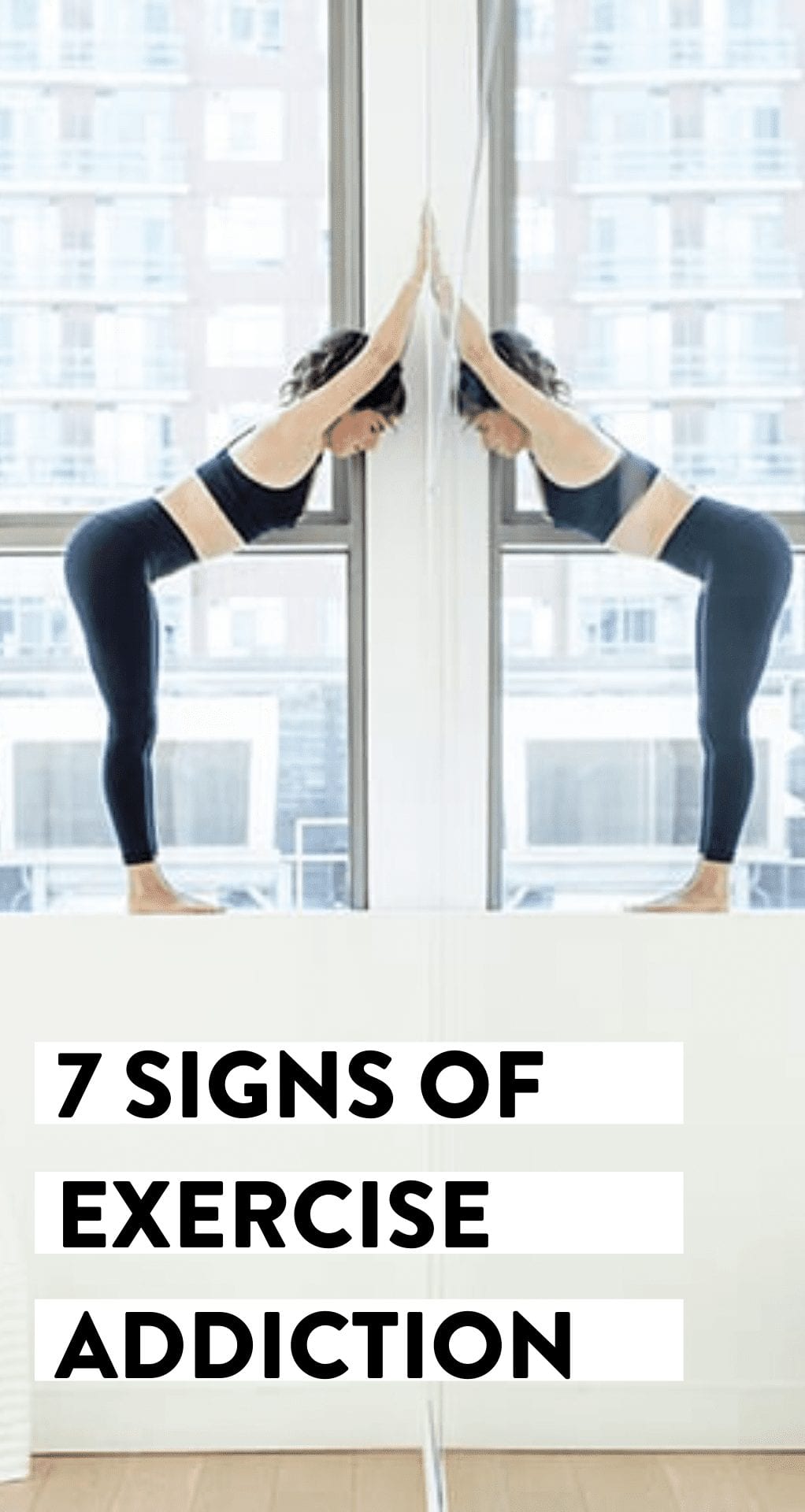This page contains some affiliate links. Please review my disclosure policy.
There are certain posts that I’ve written over the years that have deeply resonated with you more so than others. To be honest, I never know what those posts will be when I share them but one thing remains consistent across all of them: they are always written from the heart. When I wrote a letter to the woman addicted to working out I was very much writing to myself and sharing exactly what I needed to hear at that time. And when I shared what happened when I stopped working out for a month I was proving to myself that choosing not to workout was 100% okay. I suspect this is why many of those posts that have stuck with you have had to do with my own struggles and particularly with my exercise addiction.
Since we’re on the topic of transparency, only in the last year or two do I feel like I truly have a healthy relationship with exercise. I was an active kid growing up but gym culture was not at all on my mind. It wasn’t until college and my life felt like it was spiralling out of control that I really developed any kind of consistent exercise routine. And at first it brought immense relief. Exercise, without question, can be an extremely effective tool for managing mental health, but I would discover over the coming years that it cannot be the only tool. After finally coming to terms with the fact that exercise had in many ways taken over my life, my body finally needed a break. That’s where we last left off about 3 years ago. I was letting go of the chains exercise had gripped on my life and learning to move more intuitively.
Part of this process was cancelling a gym membership (and Classpass), not scheduling workouts and letting my body decide how it wanted to move on a day to day basis. I mostly walked and did yoga and that felt really good. Until it didn’t. I was finding myself pretty lethargic and agitated and knew I needed a change. And this is where I’ve come full circle and discovered that exercise can be used as one of the many tools in our toolkit for managing mental health AND does not have to be about manipulating your body <– shocker! But anyone with a history of exercise addiction will have a hard time processing this.
In another post I will share more about some of the changes that I have made for my mental health but one of the biggest ones I’ve made in the past year is to add in more exercise. A few times a week (this varies because I don’t follow any kind of plan) I have added in some Barre and strength-training classes at my co-working space. I have noticed a tremendous improvement on my mental health – more energy, fewer mood swings, better sleep – and through a lot of self-work I can truly say my only motivator for exercise is to feel good in my mind. Manipulating my body to fit our unrealistic societal norm and fat-phobic culture is not a concern of mine. In fact, I actually find working out kind of fun. Something that certainly didn’t feel the case when I was dragging myself to the gym in the dead of winter because I hated my body.
So if you are in a place where you think you might be addicted to exercise I wanted to share a set of questions that might help you decipher if you are at risk for exercise addiction. Check in with yourself and observe your own workout patterns. A little exercise audit if you will. As I was going through these questions, I realize how intuitive our bodies are. They try to speak to us to tell us what we need… it’s just a matter of if we’ll listen or not.
7 Questions to Ask Yourself About Exercise Addiction
1. Are you more tired after a workout? Do you feel rejuvenated after your workout or do you feel more run down? Obviously you might feel completely wiped after an intense workout but generally endorphins will kick in and you’ll get a rush of “post workout high”. If you never feel that euphoria and just feel more wiped out after exercise, your body might be trying to tell you it needs some rest.
2. Do you have frequent injuries? Feel like you’re alllllways injured? Again, that might be your body telling you to take a break. Same goes for persistent injuries that won’t seem to heal. I remember when I hurt my knee and despite my PTs orders to relax and rest I would immediately leave my PT appointments and head to the gym. Our muscles need time to rest and recover. Not allowing your body to recover can cause persistent injuries.
3. Are you constantly getting sick? When I was deep in my exercise addiction I would get sick all.the.time. I’ve since learned that persistent, intense exercise actually puts the body under immense stress rather than busting it. More stress = decreased functioning of our immune systems. Your body is so busy trying to recover from your workouts that it simply doesn’t have the energy to fight sickness.
4. Are you excited for your workout? There’s a fine balance between dreading your workout and just not feeling like stepping into the gym or studio. I don’t always feel overwhelmingly excited for every workout but I also don’t dread it or lack the energy to complete it. If you dread your workout, don’t go!
5. Do you feel guilty when you don’t work out? If you ever feel extreme guilt when you don’t workout, you may want to take a step back and reflect on that. Sure, you can be bummed you missed a workout because of a commitment but it’s totally normal to take days off and let your body rest. I used to be so upset with myself when I couldn’t workout on vacation and would get irritable and angry that my routine was disrupted.
6. Have your relationships suffered? Do you prioritize working out over your relationships? It’s normal to have seasons of your life when self-care or perhaps training for a particular goal (i.e. marathon training if you’re into that) is more of a priority but if this persists over many seasons and years it’s important to take a good look at how balanced your life really is. Having healthy relationships is just as important, if not more important than moving your body.
7. Are you comparing your body and/or workout routine to other people’s? My world used to be consumed by other people’s bodies and how they moved them. Every body and human has different needs and some people are able to maintain a healthy relationship with themselves and exercise more frequently. For other people this amount needs to look different. Trying to take on other people’s “body goals” as your own is a dangerous spiral.
Let me be clear: answering yes to one of these questions does not constitute a diagnosis. You will need a mental health professional for that. But what to do if you answered yes to multiple of these questions? Share that you might be addicted to exercise with someone you love and trust. If you have involved friends and family, they may have noticed these behaviors in yourself before you did and are wanting to support you. Make an appointment with a therapist and work through this with a professional. Exercise addiction is a considered a behavioral addiction according to the DSM-V and is something to be taken seriously. However, you are never alone and you can get to a healthy place with your body and exercise. I am living proof of this.
As always – here to support. Feel free to comment below or send me an email to connect.
Disclaimer: I am not a licensed mental health professional and this post is not meant to diagnose or treat any illness. If you are struggling and require immediate attention please contact the National Suicide Prevention Lifeline online or at 1-800-273-8255 which is available everyday, 24 hours a day.
Photos by: Bettina Bogar












